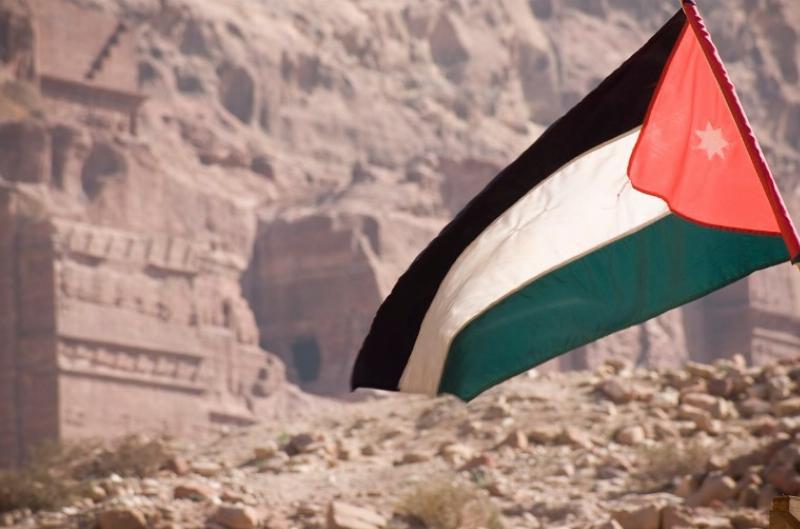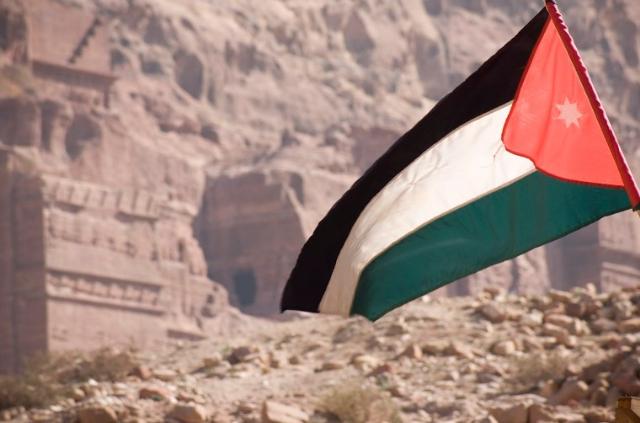


President Trump’s proposal for resettling Gazans in other countries brought to the forefront a long-forgotten truth: Jordan is Palestinian.
Yes, Jordan is Palestinian, defined by its geography, demographics, history, culture, and identity. It reflects the shared heritage of its people as Arabs on both sides of the Jordan river were called “Palestinians Arabs” until 1948. The idea of a Palestinian Jordan is not just a political maneuver; it is a historical reality that cannot be ignored.
Yet, in a speech earlier this week, King Abdullah emphatically stated that he would “never allow either Tahjeer [the entry of Palestinians into Jordan], Tawteen [accepting Palestinians in Jordan as natives] or Al-Watan Al-Badeel [Jordan becoming Palestine].” The king is afraid that Jordan’s vast Palestinian majority would take over the throne from under him. Hence, he has been isolating them and denying them their most basic civil rights in the name of “protecting the Jordanian identity.” The problem for the king is that each time he brings this up, he actually reminds Jordanians and Palestinians that while he claims to be “protecting Jordan’s identity,” he conveniently disregards the reality that his own family — fewer than 70 individuals — are not Jordanians. They originate from Saudi Arabia, and they have the chutzpah to tell Jordan’s Palestinian majority that they are “not Jordanians,” but rather “just refugees who must seek the right of return in Palestine.”
Sure, the Palestinians must seek the right of return, but to Jordan — not anywhere else. For over seven decades, the Hashemites ruling Jordan have denied the right of return to the Palestinian refugees, who have suffered in miserable conditions in Lebanon, Syria, Iraq, and elsewhere. These refugees are being denied access to their legitimate country: Jordan. This is not just an idea from President Trump or anyone else; it is the very essence of the Jordanian Citizenship Law of 1954, which states that every Palestinian, unless Jewish, is born a Jordanian national.
Thanks to President Trump, everyone now seems to remember that Jordan is a valid destination for Palestinian refugees. Hence, Gazans have the fundamental right to relocate to their homeland in the former Eastern Palestine, now known as Jordan — just as any American has the freedom to move from New Hampshire to Massachusetts.
There is absolutely no distinction between a Jordanian and a Palestinian. The reality is clear: we share the same history, culture, and identity. It is crucial for the world to recognize Jordan’s Palestinian identity and its rightful statehood. Once that recognition is secured, our next step must be to ensure a stable and prosperous future by forging a true economic, political, and military partnership with Israel, built on mutual respect and shared interests.
When it comes to Gaza, the hypocrisy is evident. Those who oppose relocation deny Gazans the right to choose their own future. Why not open the door and let them decide for themselves? For those arguing that “they do not want to leave,” the solution is simple: open the exit routes and see what happens. If Gazans do not want to leave, then why are those opposing President Trump’s resettlement plan so afraid?
From my daily communications with Gazans, I can say with certainty: given the opportunity, not even one would choose to stay. Even Hamas leaders and their families are fleeing Gaza. Although they publicly reject any proposals for the relocation of Gaza’s residents, they are quietly using the ceasefire to escape with their families. Many are being resettled in Turkey, Malaysia, and an undisclosed third country, raising serious questions about their commitment to the people they claim to represent.
Meanwhile, ordinary Gazans — particularly sick children — are denied the ability to leave for urgent medical treatment through the Rafah crossing. Hamas leaders have no such restrictions.
According to my well informed sources, approximately two hundred Hamas members and their families are leaving Gaza daily via the Rafah crossing. From there, they travel to Cairo Airport and onward to new destinations. This exodus is reportedly being carried out with the full coordination and support of intelligence agencies from certain Arab countries.
If Jordan were to acknowledge the right of return for its own citizens, Palestinians across the region would finally have a homeland — rather than remaining trapped in war-ravaged Gaza or enduring oppression and marginalization in Lebanon, Syria, and beyond. Yet this remains unattainable as long as the Hashemite monarchy continues to suppress Jordan’s Palestinian identity.
For those who truly seek lasting peace, the greatest obstacle is clear: millions of Palestinian refugees remain stateless, with no place to call home. Their rightful return to Jordan is not just a moral imperative, but a necessary step toward genuine regional stability. A Palestinian state in the West Bank would effectively exist within Israel’s borders, inevitably fueling instability for both Palestinians and Israelis. Even if such a state were to remain peaceful, it would still require substantial political, economic, and social resources, ultimately becoming a burden on Israel.
Alternatively, if Jordan were to formally embrace its Palestinian identity and grant full rights to Jordanian citizens of Palestinian heritage, it would, in effect, become a Palestinian state. This would bring an end to the decades-long debate over the two-state solution, a proposal that has only served to prolong the conflict.
In this scenario, a Palestinian Jordan would sit on Israel’s border rather than within it. Additionally, the presence of thousands of American troops stationed across Jordan — who have been instrumental in maintaining the country’s stability — would provide a further layer of security as those American men and women are the ones who have kept the Islamists mostly out of Jordan for the past decade.
Moreover, a Palestinian state in the West Bank would effectively place it within Israel’s borders, likely fueling further unrest for both Palestinians and Israelis. Even if such a state were peaceful, it would require a viable political, economic, and social outlet — ultimately becoming a burden on Israel. In other words, a Palestinian State in the West Bank is idea that has proven to be unfeasible and rather risky for all parties involved.
Alternatively, if Jordan were to recognize and embrace its Palestinian identity by granting full rights to its citizens of Palestinian heritage, it would naturally evolve into a Palestinian state. This would effectively bring an end to the decades-long push for a two-state solution, which has served only to prolong the conflict.
For now, Jordan’s Hashemite ruler has made his stance clear: he will never allow a Palestinian settlement in a country where he rules as a foreign king.
Simply put, real peace begins with restoring Jordan to its true identity.
Let’s Make Jordan Palestinian Again. Let history judge those who stand in the way — and let wisdom prevail among those who embrace the future.
Mudar Zahran is a Jordanian Palestinian politician living in exile. He heads the Jordanian Opposition Coalition. He previously served as an economic specialist and assistant policy coordinator for the U.S. embassies in Amman.

Image: Patrik Neckman via Wikimedia Commons, CC BY-SA 2.0.
